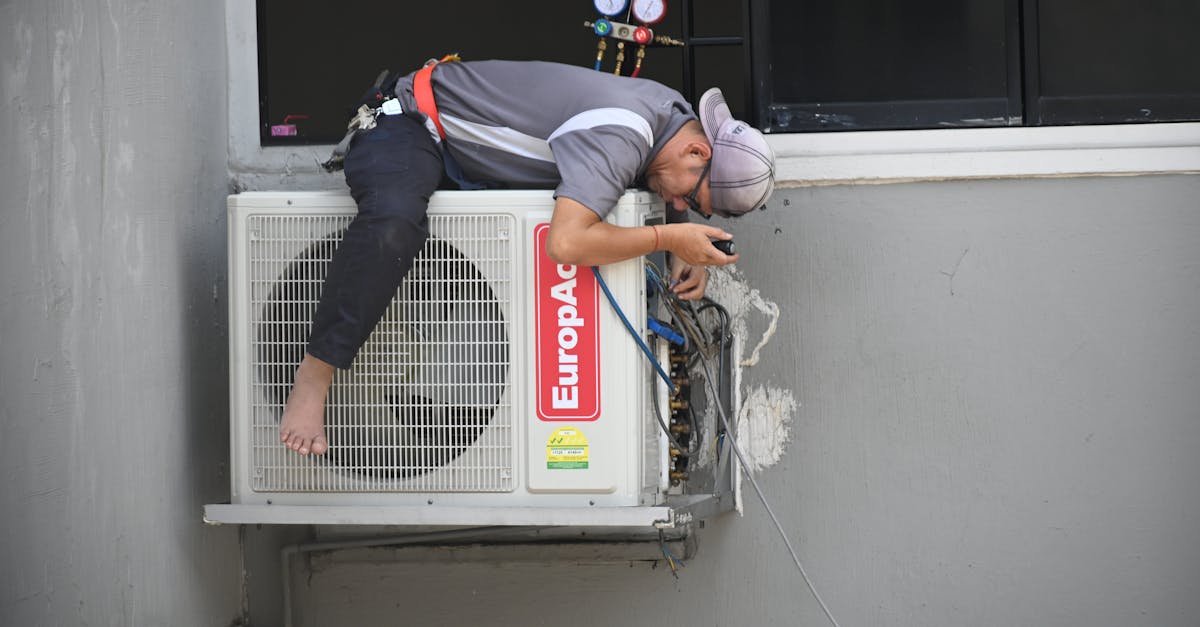
Top 10 Benefits of Using Water-Cooled Systems in Industry
Versatility in Applications
Water-cooled systems are highly adaptable and can be employed in various industrial settings. Their efficiency in heat transfer makes them ideal for processes requiring precise temperature control. Industries such as manufacturing, food processing, and pharmaceuticals benefit significantly from these systems due to their ability to manage thermal loads effectively. This versatility extends to multiple applications, including cooling machinery, regulating temperature in chemical processes, and maintaining optimal conditions in energy generation.
These systems also accommodate a wide range of operational scales, from small workshops to large-scale industrial complexes. Their design allows for easier integration into existing setups, providing flexibility for companies aiming to upgrade or expand their facilities. Furthermore, water-cooled systems can be customised to meet specific needs, enhancing their utility across different sectors. This adaptability not only improves operational efficiency but also supports diverse technological advancements within industries.
Suitable for Diverse Industries
Water-cooled systems find applications across a wide array of industries, offering tailored solutions to meet specific operational requirements. In sectors such as manufacturing, data centres, and food processing, these systems excel in providing reliable cooling efficiencies. The adaptability of water-cooled technologies allows industries to optimise performance regardless of varying scales and complexities.
These systems are especially relevant in environments where heat production is a crucial concern. Industries reliant on heavy machinery or large electronic systems benefit significantly from water cooling, as it effectively manages elevated temperatures. Additionally, sectors that prioritise energy efficiency are increasingly turning to these solutions to support their sustainability goals while ensuring optimal functionality.
Reduced Noise Levels
The operation of water-cooled systems contributes significantly to lower noise levels compared to their air-cooled counterparts. This reduction in noise enhances the working environment, making it more comfortable for employees who may otherwise be subjected to the constant hum of machinery. By eliminating excessive sound, these systems not only improve employee satisfaction but also facilitate better communication on the shop floor.
Quieter operational environments also have implications for overall productivity. Employees can focus more on their tasks without the distraction of noisy equipment. Additionally, reduced noise can be beneficial during delicate operations or meetings requiring concentration. The integration of water-cooled systems therefore supports a more serene and efficient workplace atmosphere.
Quieter Operational Environments
In industrial settings, excessive noise can lead to a variety of challenges, including employee discomfort, decreased productivity, and potential hearing damage. Water-cooled systems present a favourable solution to this problem by operating at significantly lower noise levels compared to traditional air-cooled systems. The use of water as a cooling medium allows for more efficient heat removal, minimising the need for high-speed fans which are often a primary source of noise in cooling operations.
Implementing these systems can create a more conducive work environment. Quieter operations not only enhance comfort for the workforce but also facilitate better communication and collaboration among employees. This improvement in workplace conditions can boost morale and foster a more productive atmosphere, ultimately leading to enhanced overall performance within the facility.
Simplified Maintenance
Water-cooled systems are designed with maintenance simplicity in mind, which is a significant advantage for industries that rely on operational efficiency. Their modular structures often make it easier for technicians to access critical components, reducing the time and effort required for repairs or replacements. This accessibility minimises downtime and allows for swift service, ensuring that production processes can continue with minimal interruption.
Moreover, the use of these systems can lead to fewer breakdowns due to their efficient heat dissipation capabilities. Regular maintenance checks tend to be less complex compared to other cooling systems, as the components are generally more accessible and easier to inspect. This efficiency can foster a proactive maintenance approach, enabling teams to detect issues before they escalate into larger problems, ultimately enhancing the overall longevity and reliability of the equipment.
Easier Access for Repairs
Maintenance of water-cooled systems tends to be straightforward due to their accessible design. Components are typically arranged to allow technicians to reach critical areas without unnecessary dismantling. This results in reduced downtime during repairs or regular servicing.
Additionally, the clear layout of these systems facilitates quicker diagnostics. The ease with which parts can be inspected or replaced leads to a more efficient maintenance routine. This not only helps in maintaining optimal performance but also minimises the risk of extended operational interruptions, benefiting overall productivity.
FAQS
What are water-cooled systems used for in industry?
Water-cooled systems are used for a variety of applications, including cooling machinery, reducing temperatures in manufacturing processes, and providing climate control in industrial facilities.
How do water-cooled systems compare to air-cooled systems?
Water-cooled systems are generally more efficient than air-cooled systems, as they can remove heat more effectively. They typically produce less noise, require less space, and are often easier to maintain.
Are water-cooled systems suitable for all industries?
Yes, water-cooled systems are versatile and suitable for a wide range of industries, including manufacturing, pharmaceuticals, data centres, and food processing, among others.
What are the maintenance requirements for water-cooled systems?
Water-cooled systems generally require less frequent maintenance than other cooling systems. They often have simplified designs that allow easier access for repairs and servicing.
Do water-cooled systems contribute to noise pollution in industrial environments?
No, one of the key benefits of water-cooled systems is their reduced noise levels, which helps create quieter operational environments and minimises the impact of noise pollution on workers and nearby communities.
Related Links
Roundup of Emerging Technologies in Water-Cooled SystemsThe History and Development of Water-Cooled Systems
Review of the Best Water-Cooled Systems in 2023
Why Selecting the Right Water-Cooled System Matters
Why Water-Cooled Systems are Essential for Industrial Applications
What are the Key Components of Water-Cooled Cooling Systems
What to Consider When Selecting Water-Cooled Systems
How Water-Cooled Systems Improve Energy Efficiency in Manufacturing